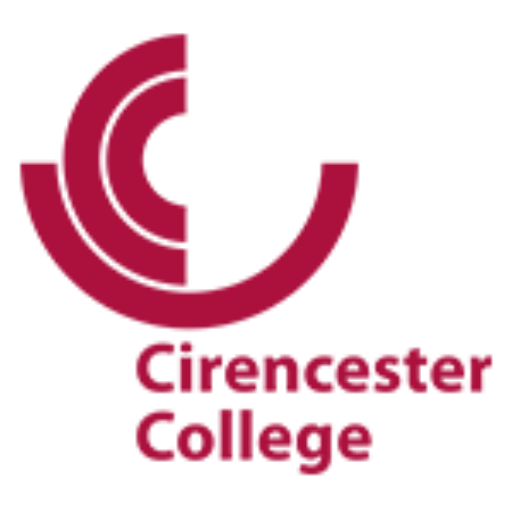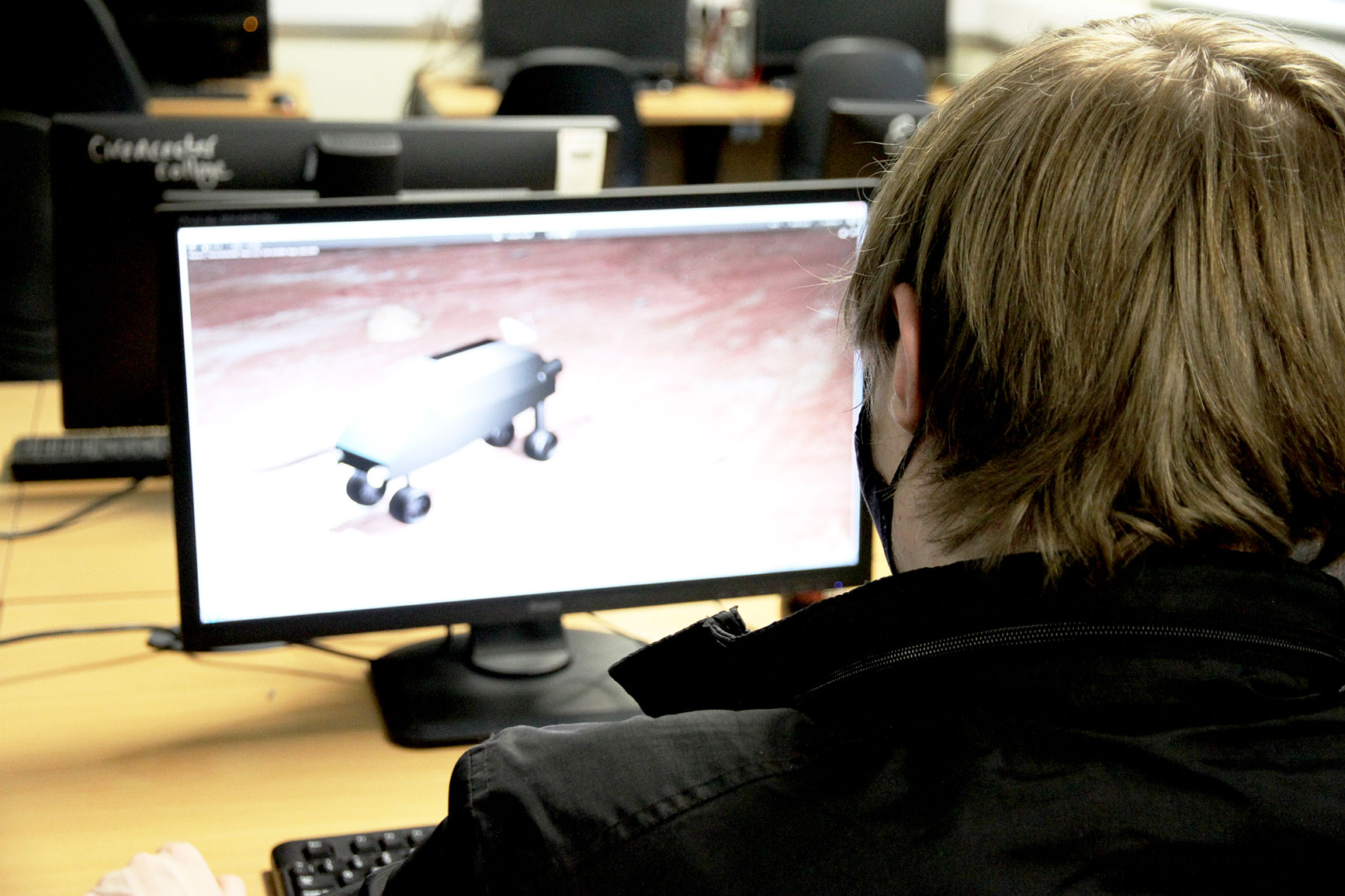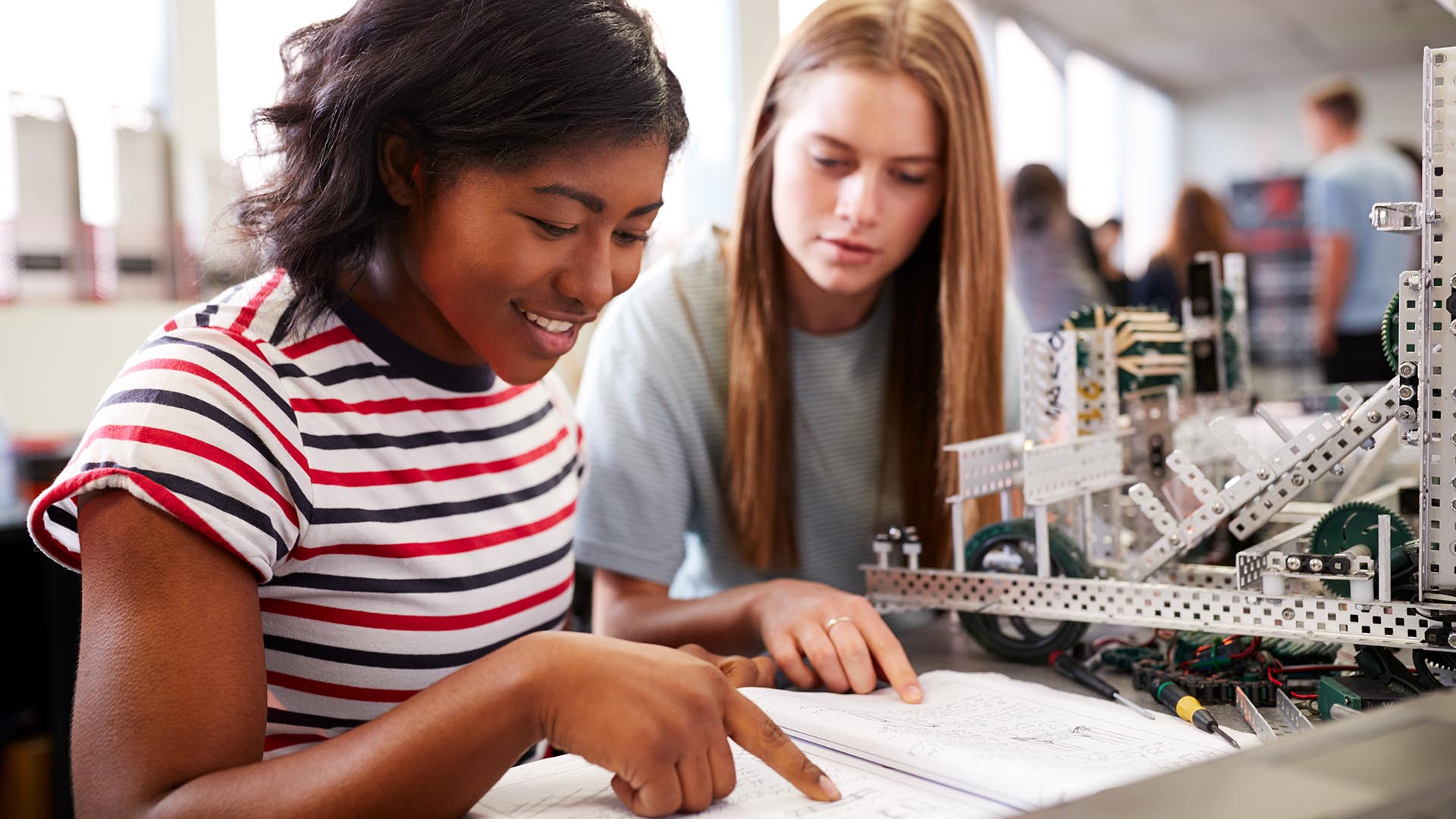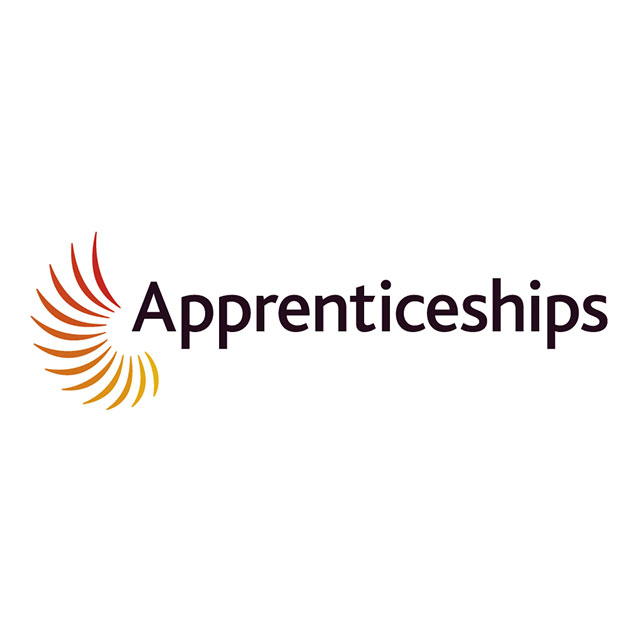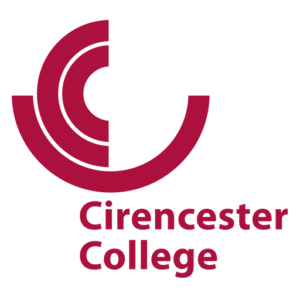DO NOT DELETE OR EDIT THIS ROW OR ITS CONTENTS

Why does light travel through glass and not through metal? If you like asking questions like this and want to find out about the answers then perhaps you should consider studying A-level Physics. Building on your GCSE experiences, we continue the journey of discovery bringing mathematical skills together with physical principles to predict and model the future.
What will I study in Physics A-level?
Through this course, you will gain experience in a wide range of physics. You will consider the weird and wonderful quantum nature of light and matter, learn about electromagnetism, delve into the depths of particle accelerators and explore the vast universe, bringing mathematical skills together with physical principles to predict and model the future.
Entry Requirements
At least five GCSEs at Grade 4 or above all from the core subjects, as well as Grade 6 in Physics OR 66 in Combined Science plus Grade 6 in Maths. We strongly recommend that you take A-level Maths alongside Physics.
How will I learn?
In lessons, there is a good variety of activities - including lecturing, experimentation, demonstration, discussion, practice questions, group work and presentations to name but a few.
Outside of lessons - you will be reviewing, practising, reading and researching.
By taking Physics you will be developing and improving a wide range of sort after skills - including problem solving, reasoning, communication, IT, numeracy and practical skills.
How will I be assessed?
The A-level grade is 100% determined from 3 exams at the end of the 2 year course.
There is also a stand alone practical endorsement that you build up over the course by completing practical work. This is awarded as a pass or fail.
Any trips?
There are a range of opportunities for visits. Past trips have included "Physics in Action" at Warwick University, Rutherford Appleton Laboratories, Bristol University & Thorpe Park.
Are there any costs involved?
Students will be expected to buy a lab notebook and a maximum of 8 booklets over the 2 years. Approximate total cost £15.
FAQs
It is challenging but very rewarding and you can obtain a much valued qualification. You will need to be prepared to work hard and think hard. We have a support session every week offering extra help to students.
This is a series of experiments conducted across the 2 years allowing you to develop and demonstrate your practical skills. It does not contribute to your overall grade but is assessed as a pass or fail.
There is a drop in support session held each week open to all students. But if you have any questions do ask or email your lecturer who will provide an answer.
Physics incorporates a lot of maths and students who study maths (and further maths) tend to find the course more fulfilling. If you are thinking about studying physics at university it will be a requirement to have Physics and Maths A-levels.
Awarding Body
OCR
Available As
[56 UCAS pts. available]

Add to Application
What can I do after I have taken this course?
Available As
[56 UCAS pts. available]


